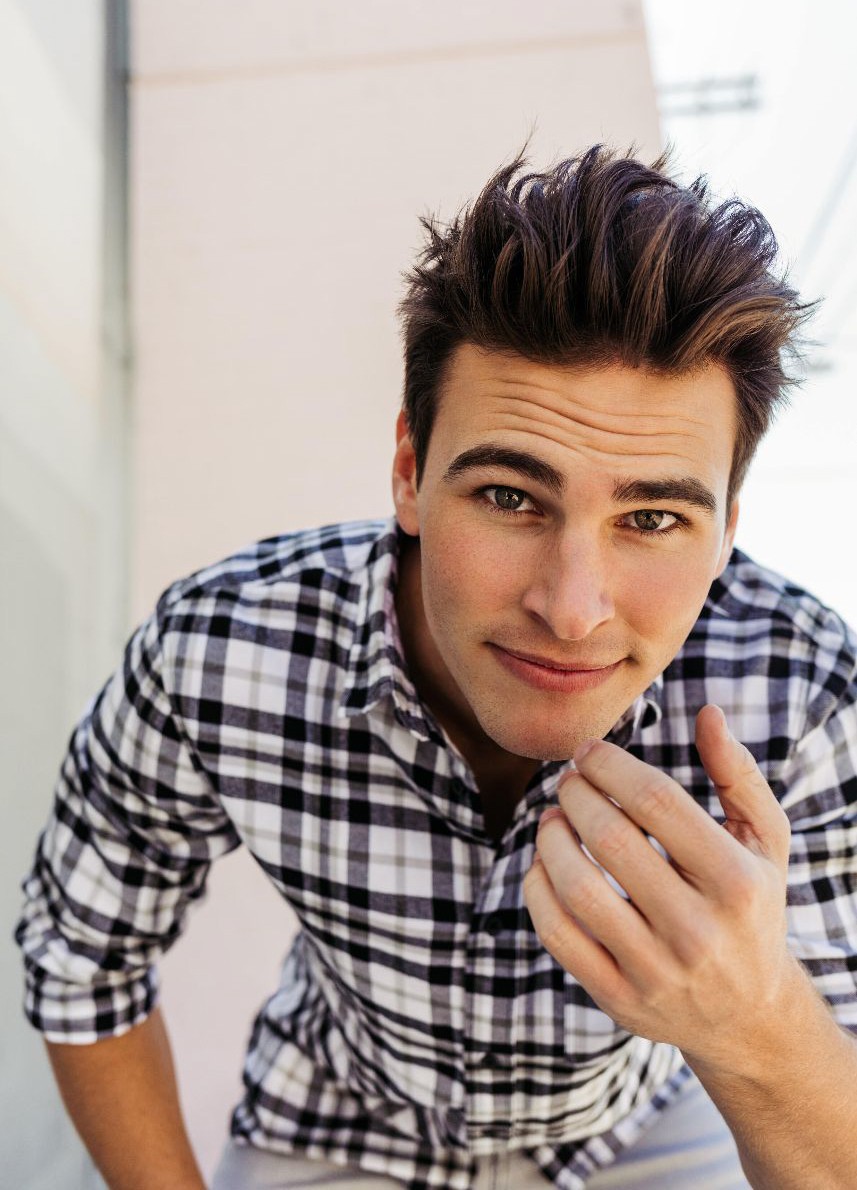Why is Everyone Quitting?

For those of you who have been following our email series, we’ve been talking about dream jobs. How to get it (if you are applying), and how to provide it (if you are hiring). It’s been a fun series as we learn about what specific questions to ask to offer special insight to yourself, how to hire someone that understands and shares the company values and culture, and finally, how to share information about yourself as a candidate to stand out and shine!
But technically, there is another path to your dream job that doesn’t involve interviewing at all. In fact, the first step might be the exact opposite direction:
Quitting.
In recent years, there has actually been a record high number of people not seeking employment but quitting their jobs.
In 2021, the US Bureau of Labor reported an average of over 3.98 million workers quitting their jobs every month. That’s just crazy! Never before have so many Americans left work and guess what? In 2022, almost 4.4 million more people quit. The trend is continuing. Why?
The biggest single predictor for companies losing workers by such a large margin was a toxic work culture. In fact, a toxic culture is 10 times more important than compensation in predicting turnover. Check out the study here.
For all those millions of workers who quit their jobs…what are they doing? As their means start to run out, they’ll have to return to the job market, but interestingly enough, many have chosen to do so by starting their own business. In fact, new business applications rose 23% in 2021 compared to 2020. The pandemic gave people a taste of entrepreneurial life, and many of them wanted to keep working from home and maintain more control over their time and work schedule.
So, what does this all mean? It means that we are all looking for something… When I stumbled into an opportunity to start my own business a long time ago, I had no idea where it would lead…but I am happy it led here… Here where I can help others dream their dream and help them start and pursue what they’ve all been wanting to do because no one can do it alone. We need each other. I am grateful for all those who walked with me on this entrepreneur journey, and I want to do the same for you. Call me. Let’s talk. Let’s dream…together.
But before you go, if this is something you’re really considering, here’s a great checklist for you to think about before starting a business. These are gold and they will help you get prepared for your next steps:
1. Develop a powerful message
This is the question we always come back to the most important question you need to answer as a business: What problem are you solving for customers? This will drive whatever you do.
2. Understand your target market
Get specific: Who are you solving this problem for? Do some research on your potential customer base and understand their buying habits.
3. Start small
If possible, self-fund your business idea at the beginning and then go for funding when you can create a growth story. This might cause you to break up your product/service offering into smaller pieces so you can fund the early stages and get some traction and experience.
4. Build around your own strengths, skills, and time available
You can’t do it all. Look for partners with complimentary gifts (this may include an accountant, a lawyer, an insurance agent, a marketing specialist, a web page designer, etc)
5. Who are your advisors?
This is another one of my favorite questions in business. Being a smart entrepreneur doesn’t mean you have all the answers – it’s about surrounding yourself with the right advisors.
6. Get a mentor
You don’t just have to learn it the hard way. Mentors are wise because they’ve already made those mistakes themselves. It’s huge to have their skills and experiences in your corner.
7. Write a business plan
Starting a business is difficult; it’s easy to spend all your time and resources on it. Having a written plan with your projected results and personal goals is the best way to stay on track.
8. Know your numbers
Have a good grasp on the numbers that tell you how your business is doing and what you can expect. “What gets measured gets managed.”
9. Know that it won’t be easy
Being a small business owner is one of the hardest jobs around. Body Rubs Detroit near me. But it’s also worth it – 84% of small business owners say they would do it all over again.
10. Do it with passion
When it gets tough, remember why you started your business and let that passion drive you every step of the way.
And remember, I’m here for whatever you need. Let’s do this!
So, Tell Me about Yourself

“So, tell me about yourself.” Did you know this is the most asked question during an interview?
And did you also know that 90% of people don’t really know how to answer?
Where do you start? Do you tell them where you were born and what your childhood was like? Do you only tell them the most recent and relevant facts about you? Do you mix & match and sprinkle a bit of each? What’s the winning formula?
Well, you came to the right place. After much research, we are going to give you the perfect formula that will help you stand out from the rest. But first, do you ever wonder why they ask this question? Why is this the most asked question during the interview? What do they want to know?
Personally, I think it breaks the ice and gives the best non-confined window into your world. So essentially, it’s the best question to really get to know you and how well-rounded and personable you are. They get to see and get a better sense of who you are beyond what they can find on your resume or just answering direct and specific questions.
So, how do we make sure to give them what they want? To let them know the genuine you. Here are the three parts to the best answer, with a few bonus tips along the way:
- Present – Who You Are. The first mistake many people make is giving too much detail in this section. Your goal should be to keep your response around 60-90 seconds, and ideally this part should make up about 20% of that. Talk about your current role, keeping it professional and positive – this is not a place for personal info or complaints about your previous work environment (you don’t want that negativity as part of your introduction).
- Past – Why You’re Qualified. Highlight a few recent achievements that show your ability to go above and beyond expectations. Try to focus on 2-3 that best reflect your previous experience (more than 4 might go too long and start to feel braggy). You can mention any past promotions or special projects/problems you solved that are specifically relevant to the new job you’re applying for.
- Future – Why You’re Here. All of this should lead up to what brought you here today. Make it clear why you’re interested and how your skills align with this new role and company. Bring it all together by showing how your passion connects with this opportunity – that reflects your fit in the role, and can be a subtle compliment to the company as a place that embodies these shared values. “I’m really passionate about x and y, and so I was really attracted to your company…”
Whatever you do, don’t underestimate this question! It might seem like an easy win (since you obviously know all about yourself), but this will often be your first impression, and most hiring decisions are made in the first minute. Don’t let the open-ended nature of the question stop you from being prepared and intentional with what you share. You know the question is coming… I hope it becomes a chance for you to shine.
Who Should I Hire?

Do you know what’s interesting to me? When I observe different businesses and start getting to know their staff, a lot of times they all seem to have a similar vibe. Like this one time, I got off the freeway and realized that my tire was flat. Not having a spare, I had to quickly call the tow truck and have it towed to the nearest repair shop. Well, the person that answered the phone was quite rude and condescending. He did not consider my emergency situation to be urgent on his end and had zero empathy. In fact, I got the sense that he hated his job and was taking it out on me.
I decided to write a review explaining how it made me feel as a customer to deal with a difficult person during a difficult circumstance. Well, wouldn’t you know it, the owner of the company replied to my review and chewed me out. No apology, just rudeness. Similar vibe.
On the opposite end of the spectrum, I walked into a busy coffee shop to get my flat white, and was met by an energetic and friendly barista who greeted me with a smile and joked around with me to lighten the mood. He told me about how the flat white is made and how they use a unique blend of creamer to make the drink pop. Then, I noticed his supervisor in the back – running around with high energy, whistling a tune, and playfully talking to the other baristas working away. Big smiles, friendly service, excellent coffee. Similar vibe.
My conclusion is that we tend to hire people that get us…and who are like us. We like to hire someone that understands our values and even shares them.
Vibe = Culture
But just because they fit our vibe, does that automatically make them the best person for the job? How do we identify and hire the right person, and not just the perfect resume? Other than finding someone with similar values, what are the best ways to evaluate important factors that will make a great hire?
Here are some to consider…
1. Do a Culture Fit Assessment
According to a study by Leadership IQ, 89% of hiring failures are related to attitude, not the technical skills that tend to be represented on paper. By evaluating cultural fit in advance, you can ensure that a candidate is aligned to your company’s beliefs, values, and unique style. A culture fit assessment is a survey that you include in the recruiting process that asks about a person’s motivation, goals and preferences that can bring these dynamics to the surface. Questions about their dream job, ideal schedule, the amount of support they expect from a manager, or work/life balance can help shed light on their fit within your organization.
2. Implement Job Auditions
Can we really trust every word someone says in a resume or interview? Job auditions are an emerging new way to cut through the BS and see how a candidate engages the actual work you’re hiring them to do. Whether it’s inviting the person to come spend “a day in the life” at your company, paying them to do a contract assignment that’s applicable to their position, or giving them an extended tryout in the desired role, a job audition is like the dressing room of the hiring process – both sides get to try it on and see how it looks before making a final decision.
3. Make Hiring a Team Effort
At BOS Media, we believe in being better together, especially in the hiring process. Having multiple perspectives will help mitigate your own blind spots or biases. Ideally every candidate should be interviewed by at least two people in your organization—preferably three—from different departments, with no single individual having the overriding vote. This might take extra work, but it’s worth it to find the right person that everyone loves to work with.
I hope this helps you hold up a mirror to your hiring process. If you find yourself too busy and stressed out to give thoughtful consideration to who you bring on board, don’t be surprised if you end up surrounded by busy, stressed out employees… Similar vibe.
Questions To Ask During Your Interview And Why

Well, I’ve gotten a lot of great feedback from last week’s email about finding your dream job and how I totally messed up during my final interview to NOT get it. You can read about my sad story here. So today, I want to start from where I left off.
As I shared before, I just kept replaying the interview in my head and trying to figure out where I went wrong. Honestly, it was a lot of things. But, what I remember most was at the very end, she asked me if I had any questions for her. Instead of having a few prepped questions to let her in on how I think, how I work, and what she can expect of me… I proceeded to tell her why I would be a great hire and how hard I would work and how dedicated I am..etc…me, me, me. I think she was turned off by my self-promotion and indulgence.
If I had it to do all over again, I would have prepared questions to give her insight into my honest intentions. You can see I’ve had years to brood on this idea… here’s what I’ve hand picked:
My top 5 if-I-could-turn-back-time questions, plus some of the benefits that come with asking them:
- Why did you decide to work at this company? I like this a lot since it’s so personal. It gives the interviewer the opportunity to talk about themselves and share from their heart and experience. Hopefully that helps establish a stronger connection between you.
- What are some of the challenges or roadblocks I might come up against in this role? This question shows that you can already envision yourself in the role, but without sounding presumptuous (since you’re anticipating the challenges as well). Based on the answer, you’ll be able to propose how you might deal with the problem as well, and reassure them that you’re not afraid to face it.
- What do the most successful new hires do in their first month here? In other words, you’re the type of person who likes to hit the ground running, and you’re open to learning from the best practices. This insider info gives you a head start to success in the company.
- How does this role contribute to larger company goals? I like how this reflects that you want to be part of something bigger than just you. The reality is, too many people struggle to stay motivated in their work because they never really get this answered.
- Do you have any questions or concerns about my qualifications? This question means you’re not afraid of critical feedback, and gives you a real-time chance to answer any issues they might have with you before you leave the room. This could be the difference between an offer and a rejection.
Hope these questions help you shine in your next interview! Before we go, I want to offer one last tip – an example of WHAT NOT TO DO:
I’m so thankful for that guy’s videos – no matter how bad my interview was, he’s proof that it definitely could have been a lot worse haha.
How to Find Your Dream Job

I haven’t told this story to a lot of people but here goes…
I interviewed for a job at Disney 20+ years ago. I’d been promoted at my current job as an Industrial Engineer and after working super hard and really enjoying the world I was in, I had an opportunity to apply for the same title at the happiest place on earth. Who wouldn’t want that? Who wouldn’t want to work for the most iconic, fun-loving, easy-going, and carefree CEO in the world? Not to mention I kinda had a crush on his girlfriend Minnie.
The application and the interview process were intense. I realized right away that they were very focused on me as a human, not just what I had accomplished. Application questions asked about specific situations and how I would handle or address them, how I would help solve them or how I would walk away from them. I don’t quite remember all the details of the questionnaire on the application, but it was enough for me to say, ah…I see what they are doing there. They want to know me.
Apparently, I answered the initial questions to their liking, because the phone interview process started. First, with the HR Director. She was kind, but kept it very general – she asked a few logistical questions, and answered some of mine. Then, I got to the next phase…an interview with my direct report. He was a delight to talk to. We connected on a lot of levels. We talked shop, discussed details about my responsibilities at my current job, and he told me about the culture and benefits of working for Disney (including passes which gives the holder and their families access to theme parks and all kinds of discounts on resorts, cruises, dining and merchandise all over the world)…I was sold! I had a good feeling he liked me too. Which I found out he did, because my next phase interview was scheduled.
Can you believe it? My dream job was almost at my fingertips. All I needed to do was kill the next interview and they would send me an airline ticket to visit their office and have the final informal interview to figure out when my starting day will be. I heard by the time they send you the airline ticket, you are pretty much in. Hearing all this, I was anxiously anticipating interviewing with my boss’s boss. Actually, I was losing some sleep…there was a lot on my mind.
Well, to make a long story short. I bombed the next interview. She was intelligent, intuitive, and intimidating. I was not ready for the questions she threw at me, I was not ready for the lack of engagement or connection I thought I would have with her, like in the previous interviews. She didn’t even laugh at my jokes. What the what? I fumbled over my own words, I sounded desperate, I sounded overconfident, I sounded like I had no idea what I was talking about, and I even sounded like I was making stuff up. I was a mess.
Disney never called me back.
For the next year, I replayed that last interview over and over again in my head. How could I have been more prepared? How could I have been more myself? How could I have been more confident, yet genuine, yet profound, yet funny, yet charming, yet intelligent, yet engaging, and yet humble? All at the same time?
I didn’t have a lot of resources back in 2002 when it came to preparing for interviews…I wish they had a TikTok hashtag I could have followed for tips and tricks to kill an interview….but, we barely had email.
In our next series, my goal is to generate great interest in learning about standard practices, insights, tips, and tricks from both ends of the job interview. I hope that what is shared can help the employer (entrepreneur) find that perfect new member of your team that you’re desperately looking for, or the employee (contractor) find that dream job you’ve always wanted.
What are the right questions to ask to ensure that the right answer will lead to the right person? What are the not-so-obvious things to look for during an interview to make sure the company culture meets your criteria? Stay tuned, there’s so much more to share.
Making Your Small Business WORK

Hopefully what we’ve shared the past few weeks has helped inspire you to truly think like an entrepreneur about your business. If you’ve been too busy to read these recent insights, you may want to take some time to go back and check them out — it could save you from the many well-intentioned but disastrous practices that cause many overwhelmed small business owners to burn out and ultimately close their doors.
I really want the story to end well for you, so let’s wrap up this E-Myth series on a very practical note. If you’re ready to WORK ON your business and experience more growth and freedom, what do you do now?
Here are 7 Steps to launch your business development program:
1. Your Primary Aim
It actually starts with you, not the business. What are you hoping to accomplish? Are you looking to increase your income, or have more free time? What do you value most? Answering these questions will drive everything you do with purpose and energy.
2. Strategic Objective
This is a very clear statement of what your business has to do in order for you to achieve that primary aim. It’s a vision of the finished product that your business will become.
3. Organizational Strategy
The key here is to build around function. Instead of just hiring random people, define responsibilities through a “position contract” – a summary of the result to be achieved by each position in the company, and the work that each occupant of that position is accountable for.
4. Management Strategy
More than amazingly competent people, you need a management system designed to get you a marketing result. The more automatic the system, the more effective your prototype will be.
5. People Strategy
You can’t just expect people to do what you want. Create a place of community that has purpose and order that inspires them into action.
6. Marketing Strategy
At the end of the day, it’s all about the customer. Visualize the people you’re serving – their demographics, and especially their needs they have that you are helping to solve.
7. Systems Strategy
There are three types of systems in your business: Hard systems (like computers), soft systems (like your people and ideas), and information systems (which tell you how these are both interacting – and what needs to change). Create the system that lets them work in harmony.
One final thought: after creating this incredible, detailed, creative, and robust system that anyone can do, are people even valued? Will they even need special skills for the job? The truth is, it’s not that people are unimportant – quite the contrary. People bring systems to life.
Great businesses are not built by extraordinary people, they are built by ordinary people doing extraordinary things. Please let me know if there’s anything I can do to support you in this – I believe in you!
The Magic Of Turning Systems Into Checklists

Our little family of four has been going to the same dentist for the last 15 years. They know us by name and know all the little intricate details about us. They knew when my daughter was running for student council; they knew when my son was getting his driver’s license; they knew I started growing my hair long and they knew when we were celebrating our anniversary (and all the suffering my wife has endured….hahaha). Do you know how I know that they know? Because every time we come in for an appointment, they follow up on what we shared from our previous visit. Did she win the student council? Did he get his license? How’s your big anniversary celebration? Oh, I see you finally got a haircut, looks much better.
They created this simple checklist:
- Casually and naturally ask questions that they care about
- Note the answers
- Review the answers right before the next appointment
- Ask specific questions about what was shared last time
- Ask new questions
This made us feel like they cared. And honestly, I think they truly did care and really enjoyed our visits. I believe that was their intention.
I love the idea of systems. As we talked about last time, the goal of an entrepreneur is to create systems that can be duplicated anywhere by anyone. It can transform our day-to-day operations, creating efficiency so the business can scale. Also, it ensures we’re delivering the same service, same product, with the same quality, and the same experience every time.
I am going to leave you with this one last story from the book E-Myth written by Michael Gerber. The story is called “A Match, a Mint, a Cup of Coffee, and a Newspaper,” and I hope it inspires you as it inspired me to continue to create systems in your business with checklists for all to follow and be accountable for.
The surprising result of all this structure: it actually allows us to be more relational as we serve customers and clients, giving them amazing experiences over and over and over again.
A Match, a Mint, a Cup of Coffee, and a Newspaper
(Michael Gerber, The E-Myth Revisited)
The first time it was an accident; that is, an accident for me. I hadn’t planned to go there.
I’d been driving for seven hours, and, tired of the road, decided to stop for the night before going on to San Francisco.
The hotel was located in a redwood grove overlooking the Pacific.
By the time I walked into the lobby, the sun was setting and the grove had turned dark as pitch.
Instantly something told me that I was in a special place. The lobby was warmly lighted. Redwood paneling reflected the red glow of the light onto beige overstuffed couches that hugged the three walls surrounding the reception desk. A long, dark wood table faced the front door through which I had just entered. On the table rested a huge woven Indian basket overflowing with fresh fruit. Beside the basket stood a massive bronze lamp, its deepest burnished light bouncing off the fruit, adding a festive look to the room. Running the full length of the table and falling down on either end almost to the floor was an intricately crocheted linen cloth, its bright, exotic pattern accentuating the colors of the fruit, the bronze of the lamp, and the deep red ochre of the walls.
At the far side of the table, against the far wall, in a massive fieldstone fireplace, a roaring fire filled the room with the cheerful crackling of its furiously burning oak logs.
Even if I hadn’t been so tired, the contrast between the heat of the flames on my face and the cold of the night at my back would have been enough to attract me to the room. As it was, I practically melted with delight.
Behind the reception desk a woman appeared dressed in a freshly starched red, green, and white gingham blouse and a deep red ochre skirt. A pin with the logo of the hotel atop a red ochre ribbon decorated her blouse like a badge of honor. A matching ribbon held her hair back from a glowing face.
“Welcome to Venetia,” she smiled warmly.
It took no more than three minutes from the moment she spoke that greeting to the time the bellboy ushered me into my room, despite the fact that I had no reservation. I couldn’t believe the ease with which it all happened.
And the room! The overall impression was one of understated opulence—thick, muted pastel wall-to-wall carpeting; a four-poster, king-size white pine bed covered by a magnificent, impeccably clean, white-on white quilt; original graphics depicting scenes and birds of the Pacific Northwest gracing the rough-hewn elegance of the natural cedar walls; a stone fireplace with oak logs already prepared and waiting on the grate for the fire someone knew I would appreciate, paper rolled ceremoniously beneath the grate, and an elegant oversized match lying diagonally across the hearth, waiting to be struck.
Delighted with my good fortune, I changed for dinner; the woman at the desk had made my reservation when she checked me in! I walked out into the night to find the restaurant. A sign by a path outside of my room pointed me down another well-lit path through the dark redwood grove.
The night air was still and clear.
In the distance I could hear the hushed, rhythmic patter of the Pacific Ocean surf. Or was it my imagination? It scarcely mattered; an aura of magic surrounded the place.
The restaurant stood on a knoll overlooking the hotel and the ocean. Until I went inside, I hadn’t seen another person, but the restaurant was crowded.
I gave the maitre d’ my name and he immediately showed me to a table, despite the fact that other people were waiting. Evidently, reservations meant something in this restaurant!
The meal was as delightful as everything I had experienced before it, the food attractively prepared, the service attentive yet unobtrusive. I lingered over a glass of brandy while enjoying a classical guitarist who played a selection of Bach fugues for the dinner guests.
I signed the check and returned to my room, noting on the way that the lights had been turned up on the path apparently to compensate for the growing darkness.
By the time I arrived at my room, the night had become chilly. I was looking forward to a fire and possibly another brandy before going to bed.
Somebody had beaten me to it!
A brisk fire was burning in the fireplace. The quilt was turned down on the bed. The pillows were plumped up, a mint resting on each one.
On one of the night tables beside the bed stood a glass of brandy and a card. I picked up the card and read:
Welcome to your first stay at Venetia. I hope it has been enjoyable. If there is anything I can do for you, day or night, please don’t hesitate to call.
– Kathi
As I drifted to sleep that evening, I felt very well taken care of.
The following morning I awoke to a strange bubbling sound in the bathroom. I arose to investigate.
A pot of coffee, turned on by an automatic timer, was merrily perking away on the sink counter. A card resting against the pot said:
Your brand of coffee. Enjoy! K.
And it was my brand of coffee!
How in the world could they have known that?
And then I remembered. At the restaurant the night before they had asked me what brand of coffee I preferred. And here it was!
Just as I caught on to what they had done, there was a polite knock at the door.
I went to the door and opened it. Nobody. But there on the mat was a newspaper. My newspaper, the New York Times.
How in the world did they know that?
And then I remembered. When I checked in the night before the receptionist had asked me the newspaper I preferred. I hadn’t given it another thought. Until now. And there it was!
And exactly the same scenario has occurred each and every time I’ve returned.
But after the first time I was never asked my preferences again.
I had become a part of the hotel’s Management System.
And never once has it let me down.
The system knows what I like and makes certain that I get it, in exactly the same way, at exactly the same time.
What exactly had the System provided? A match, a mint, a cup of coffee, and a newspaper!
But it wasn’t the match, the mint, the cup of coffee, or the newspaper that did it. It was that somebody had heard me.
And they heard me every single time!
The moment I walked into the room and felt the fire, I knew that someone had thought about me. Had thought about what I wanted.
I hadn’t said a word, and yet they had heard me.
The moment I saw the mints on the pillows, the turned down quilt, and the brandy on the table, I knew that someone had thought about me. Had thought about what I wanted.
I hadn’t said a word and yet they had heard me.
The moment I heard the coffee pot perking in the bathroom and saw the card that identified it as my brand, I remembered that someone had asked for my preference.
And they had heard my answer.
The instant I saw the newspaper and recognized it as my newspaper, I remembered that someone had asked.
And they had heard my answer.
And it was totally automatic!
Every single element was an orchestrated solution designed to produce a marketing result, and integrated component of the hotel’s Management System.
After my third visit to the hotel, I asked to speak with the Manager.
I wanted to find out how he was able to produce the identical results for me every single time.
How could he make certain that someone would ask the right questions so as to ensure the correct results for each and every guest?
Was it because he hired extremely competent people?
Were the employees owners?
Was it some kind of special incentive system?
The Manager was a young man of twenty-nine. He invited me into his office to talk. It was well-lit, modest in size, and overlooked the redwood grove I had walked through to get to the restaurant. His desk was clean and neatly organized, not a loose paper in sight.
“This is very orderly young man,” I thought to myself.
“Perhaps he’s the reason the hotel works so well.”
The young Manager obviously enjoyed his job, because he warmed immediately to the conversation about his work and the task of producing the results for which he was held accountable by the hotel’s owner.
“You know,” he said, smiling self-consciously, “it’s funny sitting here talking to you about what we do here at the hotel. Because until five months ago, the only experience I had in the hotel business was as a guest for two nights at a Holiday Inn in Fresno three years ago.
“In fact,” he continued, “before this job I was working as a short-order cook at a restaurant nearby. The owner and I got to know each other. He asked if I’d like to learn the hotel business, and before I knew it, he hired me. Everything I know about the hotel business I’ve learned here.
“Here, let me show you.”
He reached behind his desk for a red binder. Printed on the spine were the initials OM and the logo of the hotel.
“What we do here is simple. Anyone can do it.”
He opened the binder to the table of contents.
“This is our Operations Manual. As you can see, it’s nothing but a series of checklists. This one is a checklist for setting up a room.” He opened the book to a yellow page.
“This group of pages is yellow. Everything in the Manual is color coded. Yellow has to do with Room Setup. Blue, with Guest Support Services. For instance, when we light your fire at night, put the mints on your pillow, and so on.
“Each checklist itemizes the specific steps each Room Support Person must take to do his or her job.
There are eight packages of checklists for each Room Support Person waiting in their mailbox when they come in every day. Each package of checklists is used for one of the eight rooms the Room Support Person is accountable for.
“As a Room Support Person goes about the process of taking care of his or her eight rooms, a checklist is completed to confirm that the work was performed according to the standards. As you can see, here at the bottom of the checklist is a place for the RSP to sign, indicating that he or she did the prescribed work.
“To sign and not to have done the work is grounds for instant dismissal.
“But there’s another part of the system that really makes it work.
“On the back of each checklist is a drawing of the specific room that identifies each task to be completed, and the order in which it has to be done. The drawing takes the RSP through the routine, and, as they complete each task, they check off the corresponding part of the drawing to show that it was done.
“With the drawing we can train new people almost instantly and have them producing a result identical to that of a person who’s been with us for quite some time.
“As added insurance, my RSP Supervisors run spot checks every day to make certain that any errors are caught in time.”
He paused and smiled. “But there are rarely any errors. They system works like a charm.
“There’s an equally effective system for everything we do here. The fact is, the owner worked it all out in advance. The lighting, the sauna, and the pool are timed electronically and synchronized with the seasons, so that they deliver a predictable result to the guests. For example, you might have noticed that at night the outdoor lights increase in intensity as it gets darker. That’s done automatically. No one has to think about it.
“I could give you lots of other examples, but I think you get the point. The whole thing was put together in a way the owner believed would make a positive impression on our guests. You’d be amazed at how many people come up to me after staying here just to thank me for how well they were treated.
“But it’s not the big things they talk about; it’s always the little things.”
I could understand and believe all he had said, but still I asked, “How do you get your RSP’s to use the checklists? How do you get them to use the system? Don’t they get tired of the routine? Doesn’t it get boring for them?”
“Ah,” said my willing host. “That’s where we really shine.”
Putting Systems To Work For You

Confession.
McDonald’s Fries are better than In-n-Out. I don’t care how for 75 years, their potatoes are shipped right from the farm, individually cut in their stores, and then cooked in 100% sunflower oil. And I don’t care that they’ve never been frozen. I prefer double fried in lard straight from the freezer with a pound of salt dumped on it…just how I like it. Mmmmmm…
In fact, did you know that I can go to any one of 120 countries in the world, walk into a McDonald’s, order my extra-large fries and it will taste exactly the same as the one I always get 5 minutes from my house in California?
How is this possible? It’s not like they hire the top chefs from all over the world and do intense training along with rigorous quality assurance inspection to ensure every fry tastes the same wherever the extra-large fries are served. In fact, it was probably prepared by an unskilled, fresh new rookie during his/her first night shift on the job. So again, how is this possible?
Systems.
Let’s recap our series and walk through how we can build a business according to E-Myth.
- Don’t be a technician, be an entrepreneur – More Info
- Don’t work in your business, work on your business – More Info
Our third concept is this: Create systems that can be duplicated anywhere and followed and executed perfectly by anyone.
This is what separates the true entrepreneurs from the technicians. It makes the difference between experiencing growth and freedom in your work instead of feeling overwhelmed by all the tasks that depend on you. Systems are the secret – here’s why:
Systems are automatic. Picture all the work you do translated into a series of checklists. Every single element is orchestrated to produce a result as one component of the overall system. There is no guess work in what everyone’s supposed to do – it’s a matter of checking every detail of this list, step by step, every time.
Systems are consistent. Like America’s favorite fries, systems produce identical results every single time, no matter who is doing it. It’s not based on the brilliance of your employees – once your system has been clearly defined, everyone’s job actually becomes extremely simple.
Systems don’t depend on you. Your most important work is done in advance – thinking through every detail, then creating the operations manual for others to follow. Once every element of your business is translated into a system, you’re free.
That’s the real challenge though – before you get to freedom, the biggest work of your life depends entirely on you: the creation of the system itself. It might seem daunting, and we’ll constantly be tempted to say, “it’s easier to just do this myself.” That all depends on what you mean by “easier.” Handing off a binder full of simple steps that anyone can do and letting the system work for you sure seems easy to me.
I Became My Own Bottleneck

I started my business designing and developing websites because that’s what I knew how to do. I was pretty good at it, and I also enjoyed it. I come from a few generations of artists in our family, so I think I might have inherited an eye for design. Also, I studied engineering so I love technology and I geek out on the technical part of development. It was a perfect combination for building websites. So, that’s what I did.
A few years into running my own company, I also became a pretty savvy salesperson…this skill set was a must to gain more clients. Then, I needed to do accounting…money was coming in and going out and I needed to manage it all. Then, I started to juggle many projects at once, and my organization and management of these projects were getting a bit out of control. I couldn’t keep my deadlines.
Eventually, I became my own bottleneck. I couldn’t grow anymore because there are only 24 hours in a day and only one employee doing everything….me. I became the poster child of what the book E-Myth I referenced last week is talking about. I desperately needed a change. A mindset change and an operational change. This is where one phrase from the book finally hit home for me:
“Work ON your business, not IN your business.”
What does that mean?
I realized I had started my business as what they call “a technician” – relying on my own effort to get results. No matter how capable I was at the job, and how hard I worked, every aspect of the business was still dependent on me.
But this is NOT the entrepreneurial mindset – it’s literally the e-myth. According to the Chairman of the E-Myth Board, a true entrepreneur has to be able to think differently:
“To the Entrepreneur, the business operates without them.
To the Technician, the business operates because of them.
To the Entrepreneur, the business is the product.
To the Technician, the business is a place to go to work every day.”
Working ON your business means imagining your business as something completely separate from you. Ask yourself: How would your business have to operate if it couldn’t depend on you to personally produce results? What would it mean to re-imagine every system your team would need to effectively deliver the ideal customer experience—without you?
On the most basic level, what ultimately saved my life and business was a fundamental shift in what it actually means to work.
If you’re overwhelmed right now, I want you to know: there is another way. Imagine a business that operates consistently, profitably and self-sufficiently that doesn’t rely on you… where instead of drowning in tasks, you enjoy freedom as you work and grow your business.
This really is possible – can’t wait to talk about it more next week!
How to Make Your Dreams NOT Come True

A long, long time ago when I would dream about someday starting my own business, I wanted to do some research to make sure I knew what I was getting into. I was told by many people and by my awesome mentor (Google) that I should read this book called E-Myth. What kind of weird title is that?
I found out that the “E” stood for “Entrepreneur,” and the book was about this “Myth” people believe that most businesses are started by those with awesome business skills.
Well, they aren’t.
Most are started by someone who’s good at doing something (let’s call this person “a technician”) who knows nothing about running a business, and therefore, most businesses fail.
I was intrigued. So I read it. And to this day, I can honestly say, it’s one of the most influential business books I’ve ever read. So, I thought I would do a new series on some of my key takeaways from this book, and share how it shaped and re-shaped my perspective and strategy about business. Ready?
Well, I love stories, so I loved that this book started out with this story about his friend Sarah who learned how to bake pies from his dear aunt. She loved baking pies, and not only that…it wasn’t just a pie, it was the most amazing, unique, and delicious pie you would ever eat. Everyone who tried her pie said she should start doing something with this special talent and her secret recipe. That’s when she started dreaming of owning her own pie shop. And eventually, her dream came true.
I was hoping that the story just escalated from there – she would open another shop, and another, and eventually, a thousand more. Then she’d retire and live happily ever after. Well, that didn’t happen.
Three years into it, she found herself getting to the bakery at three in the morning to bake pies. She would then open the shop at 6am to take care of customers all day, then clean up, close up, do all the accounting, have dinner and get the pies ready to bake for the next morning. She did this 6 days a week, all year round. She found that the work she used to love more than anything else became work that she hated. She left her 9-5 job to buy herself a 12-15 hours a day, 6 days a week kinda job. On top of all that, she was struggling financially.
Point of the story? Don’t be a technician. Be an entrepreneur. Don’t have a technician perspective in your business, have an entrepreneur perspective. Don’t work IN the business, work ON the business.
I will break down these points in detail next week to help us understand the difference. I hope it will enlighten you, challenge your perspective, and give you some reassurance as you create strategy for your business.